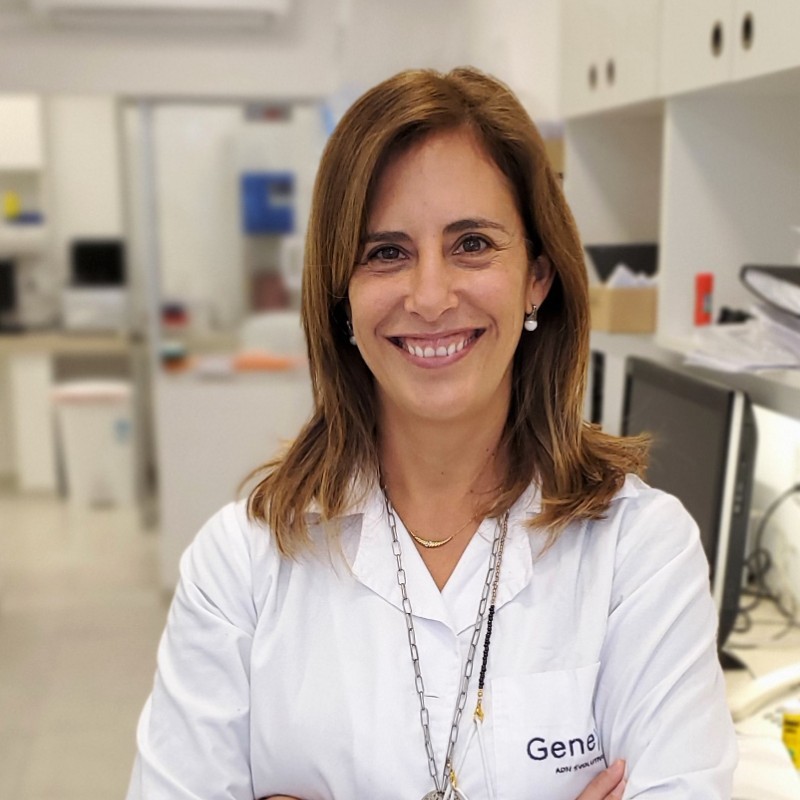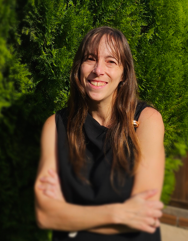|
|
|
Chair
Agata Piestrzynska-Kajtoch
National Research Institute of Animal Production
Balice, Poland
Term of service (2025-2029)
Co-Chair
Rosina Fossati
Genexa
Montevideo, Uruguay

Term of service (1st, 2023-2027)
Member
Foluke Sola-Ojo
UNIVERSITY OF ILORIN
ILORIN, Nigeria

Term of service (2nd, 2023-2027)
Educated in animal production, Foluke Eunice Sola-Ojo specializes in animal breeding and genetics at the University of Ilorin, Nigeria. Presently she is a senior lecturer, with a research focus in taxonomic classification and genetic diversity of Nigerian poultry species through the use of mitochondrial genes.
Member
Angelika Masior
National Research Institute of Animal Production
Cracow, Poland

Term of service (2nd, 2025-2029)
Angelika Masior received a PhD in animal science at the National Research Institute of Animal Production in Balice, Poland. Since 2015, she has been working at National Research Institute of Animal Production, where she deals with individual identification and parentage testing: dogs, cats, pigeons, goats, sheep, alpacas, and llamas. Angelika Masior also performs forensic genetics research in forensic investigations involving different animals. Angelika Masior was an organizer of Pigeon Comparison Tests and Alpacas/Llamas Comparison Tests but also participated in Comparison Tests for the National Research Institute of Animal Production, where she was responsible for obtaining CT results for pigeons, alpacas/llamas, goats, dogs, cats, and forensic genetics.
Member
Jiansheng Qiu
Neogen Genomics
Lincoln, NE United States

Term of service (1st, 2023-2027)
Jiansheng Qiu received a PhD in quantitative genetics and completed postdoctoral training in molecular biology at Auburn University (Auburn, AL), where he was later hired as a research fellow and a graduate faculty member. He was a senior scientist at LI-COR Biosciences (Lincoln, NE) for three years before he joined GeneSeek (Lincoln, NE) as director of genomic services in 2001. He currently is the director of quality systems at Neogen Genomics (Lincoln, NE). Qiu has 30 years of research experience in molecular marker development and assay designs in various species. He served two terms as the chair/co-chair of the ISAG Cattle Molecular Marker and Parentage Testing Committee and the ISAG Applied Genetics of Companion Animals Committee. He is a member of the International Committee for Animal Recording (ICAR) DNA working group and a council member of the American Association of Laboratory Accreditation (A2LA). Qiu has substantial knowledge and experience in managing R&D projects and quality assurance per ISO17025 guidelines.
Member
Luca Fontanesi
University of Bologna
Bologna, Italy
Term of service (1st, 2025-2029)
Member
Lucía Borreguero Escribano
Laboratorio Central Veterinaria
Algete, Spain

Term of service (1st, 2025-2029)
Lucía Borreguero is a biotechnologist with a PhD in molecular biology and biochemistry from the Universidad Autónoma de Madrid (Madrid, Spain). With more than 12 years of experience in human and animal genetics, she has developed a strong background in molecular research and genetic analysis. She currently serves as the director of Molecular Genetics at the Central Veterinary Laboratory (Algete, Madrid, Spain).
Member
Avneesh Kumar
DUVASU Mathura, UP-281001, INDIA
Mathura , Uttar Pradresh, OC India

|
|
